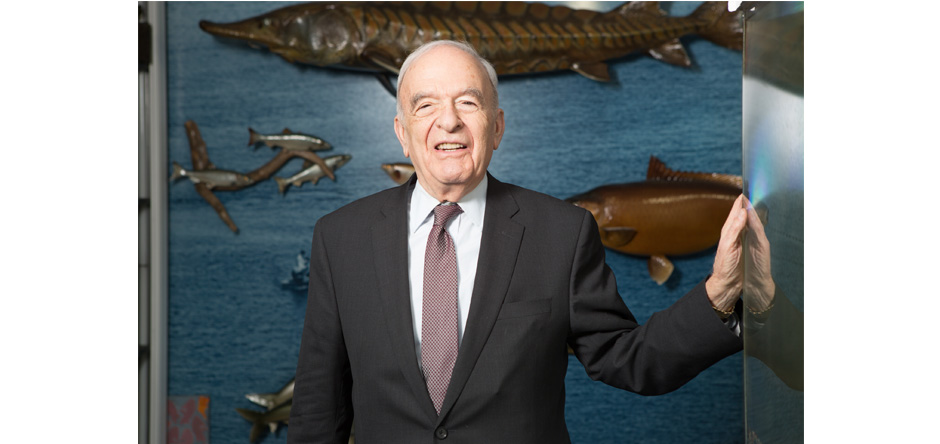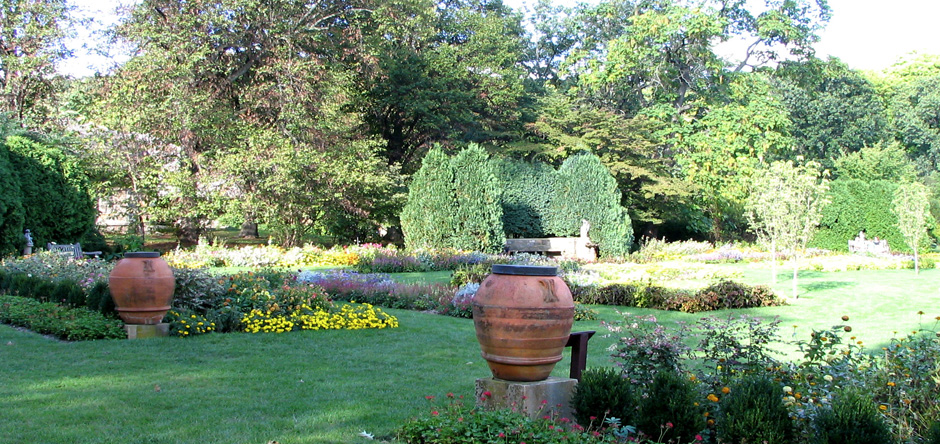Since its founding in 1910, the Boy Scouts of America has provided more than 110 million youngsters with a strong foundation in nature study and the environment. Richard L. Ottinger — the former New York congressman turned founder of the Pace Energy and Climate Center at Pace Law School in White Plains — was one of them. Growing up in Scarsdale (where he attended public schools before graduating from the Loomis Chaffee School in Windsor, Conn.), Ottinger enjoyed the experiences he had on the way to becoming an Eagle Scout, scouting’s highest rank, which opened his eyes to the beauty of the natural world that surrounded him. He proudly wore the merit badges he earned.
Scouting laid the foundation for what would become Ottinger’s lifelong journey as a passionate champion of the environment. Along the way, he has made an indelible mark as a groundbreaking environmental attorney, legislator, educator and author, who today at age 86 is shaping the next generation of environmental lawyers to continue the cause well into the century.
Ottinger takes special pride in his role as founder and faculty supervisor of the Pace Energy and Climate Center, an advocate for clean energy and climate-change remediation that attracts top students for its studies.
“We have been a reliable source of information and statistics for scientists, policy makers and industry,” Ottinger says.
Among the studies underway at the center is one exploring ways to compensate utilities that are increasingly losing revenue as homeowners and businesses adopt solar energy to reduce their energy bills.
Those homeowners include Ottinger, who decided eight years ago to “put his money where my mouth is” by equipping his new home with a geothermal heating and cooling system that does not burn fossil fuel. He was the first homeowner in Mamaroneck to do so, investing $30,000 in the new technology.
“It started to pay for itself immediately by cutting my utility bill in half,” he says. In about two years, his investment will have paid for itself with what he has saved on his energy bills.
After college (Cornell, Harvard Law School and Georgetown) and military service (U.S. Air Force pilot), Ottinger practiced international and corporate law. But he soon turned to more idealistic pursuits, co-founding — and serving as the second staff member — of President John F. Kennedy’s Peace Corps in 1961 at age 32. As director of programs for the west coast of South America, he helped inspire more than 220,000 young volunteers to serve as citizen ambassadors in 140 countries around the world.
Emboldened by this experience of making a difference in society through public service, Ottinger entered politics and won election to the House of Representatives, serving from 1964 to 1970 and 1975 to 1985. He wasted little time in earning a reputation as an environmental firebrand by taking up the cause of a grassroots organization, the Hudson River Fishermen’s Association (HRFA), forerunner to Riverkeeper. When he attended an HRFA public meeting about reinstating the Refuse Act of 1899, a nearly forgotten federal law that banned the dumping of refuse in navigable American waters except by permit, Ottinger recalls he was “appalled by how the Hudson River had become so polluted by industries along the banks and how local fisheries were destroyed.”
Deciding it was time to stop the river from dying by holding the polluters accountable for their actions, he joined HRFA in suing Penn Central Railroad, which for years released petroleum products into the Croton River, a tributary of the Hudson. The railroad lost the suit, beginning a movement that would in time stop the practices of several other major sources of pollutions, including the General Motors plant in Tarrytown, and the City ofNew York, which dumped more than a billion tons of raw sewage into the river every day, and led to the passage of the landmark Clean Water Act of 1972.
After retiring from Congress, Ottinger began an entirely new chapter in his environmental career when he joined the Pace Law School faculty to teach environmental law. One can well argue that as a result of Ottinger’s 31-years of considerable contributions to Pace, environmental law has emerged as a significant discipline on the campus, accounting for 25 percent — about 200 students — of the 800-student population.
Now professor emeritus, Ottinger has long been honored for remaining at the vanguard of energy policy and sustainability. But his record of accomplishments that unquestionably established Pace Law School as a preeminent leader in environmental law the world over was recognized in a special way two years ago. That’s when dignitaries, family, friends and students gathered to celebrate the dedication of the Richard Ottinger Hall, a new 27,000-square-foot building.
Quite the lifetime merit badge.
For more on the Pace Law and Climate Center, visit energy.pace.edu.




